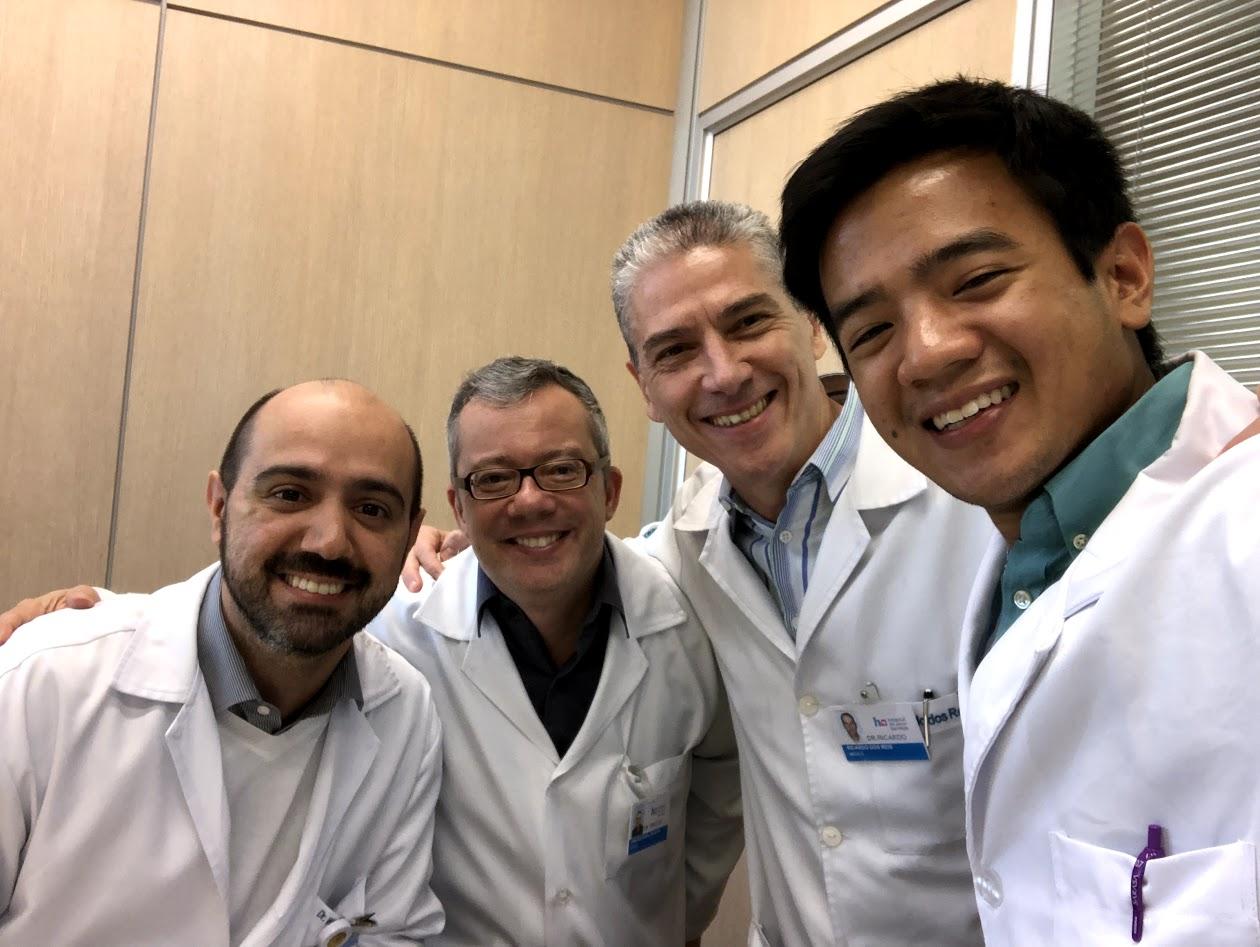Again, I find myself sitting at a seat in an airport while I collect my thoughts. There’s a man eating rice and beans to my left. Baristas in the café go about their business making coffee and handing out pão de queijo to hungry customers. In front of me, sliding doors open and close, giving me my last few glimpses of the Sao Paulo state. You can probably tell, I’m feeling fairly sentimental right now. I’ve spent the past two months working in the hospital here, and I’ve grown fond of the environment and all the people I’ve had the pleasure to meet.
I count myself lucky for having the chance to work with such passionate and kind individuals at Hospital de Amor. Half a year ago, I heard a profound quote at a missions conference: “If your dreams are something that you can accomplish by yourself, then they’re too small.” Working at Hospital de Amor truly made me realize the weight of this statement. I was the only person this year to come to Brazil from the GMI program. Sure, there was Diego and Paula, undergrads from the Rice 360 program, but it still wasn’t the same as having somebody who had the same assignments and struggles as me. There were times where I got stuck on what to do next, or when I had so many ideas floating around in my head, it would have been helpful to have somebody there to sort out my thoughts with. This is exactly why I’m grateful that I was able to work with a team of medical students from the Faculdade de Ciências da Saúde de Barretos (FACISB).
The general idea of working with FACISB was to function like an engineering company: the students acting as consultants for any medical information, with me acting as an engineer working for a client. We decided that our little company would be called RiCSB Biomed and got to work. As a bioengineer, my job was to create solutions for unmet or underserved clinical needs. Since we were just starting out, we began with opportunity definition and solution landscaping. The entirety of my first month at Hospital de Amor was just researching and observing the context around the problems that were given to me. The students from FACISB were doing the same in their respective departments. When we all finally came together, we shared information and began brainstorming solutions. We went through 4 or 5 stacks of post- it notes just creating ideas that could help address the problems at hand. I’ve never experienced it before, but an entire week of brainstorming was much more draining than I thought it would be. We made sure to take plenty of breaks, but at the end of each day, we still felt like dish rags that had been wrung out by the Hulk. When all was said and done, we found that we had created 284 ideas! The next week, we narrowed down the solutions to about 10-15 for each problem, and used a Pugh matrix to isolate the ones we thought were best.
The following details are the results of 2 months of hard work, and I’m excited to be able to share this with you all! Without further ado, here it is:
- Nuclear medicine: ---- --- -- - for - ----- ----
- Pathology: ---- -- ------ ---- --- -----.--- ----: ------- --- device
- Radiotherapy: ------- -- ----- with an ---- ------- of ---- --- --- functions, ---- --- -------- - --- to ---- -----bb
I’m pretty sure I signed a confidentiality agreement, so some of this text will probably be redacted after I submit it. Hopefully, you’re still able to recognize why we’re suggesting something crazy like putting a --------- - -- - in the ----- ------- -----?
All joking aside, it’s the end of my time here, but I didn’t really feel the weight of how much I accomplished until I took a minute to look back at how far I’ve come. Up until this week, I had the feeling that I was inadequate, and that I should have been doing more at the hospital. It wasn’t until I started preparing for my final presentation that I realized just how much work I’ve done alongside my team. Looking at my notebook from the side, you can tell just how many observations and notes I’ve taken by the the pages that look slightly discolored from pencil lead and bleeding ink. The computer files where we stored all our work are full of useful information and organized well. Lastly, people who were strangers when I first arrived in Barretos I now consider to be my friends. From this trip, I was able to get plenty of practice with the beginning phases of engineering design, experience and learn about a culture that I’ve had little contact with before, and created relationships with some amazing people. I’m grateful to Hospital de Amor and its staff for hosting me, the FACISB students for working with me, and Rice University for giving me this opportunity to make an impact. Currently, the ideas we created in Brazil are just concepts. This year, I’m looking forward to learning what it takes to bring these ideas into reality. We’ll be choosing which projects to work on in October, and I can’t wait. If you’ve managed to read this far, Obrigado! Keep an eye out for the next blog here, so Tchau!

